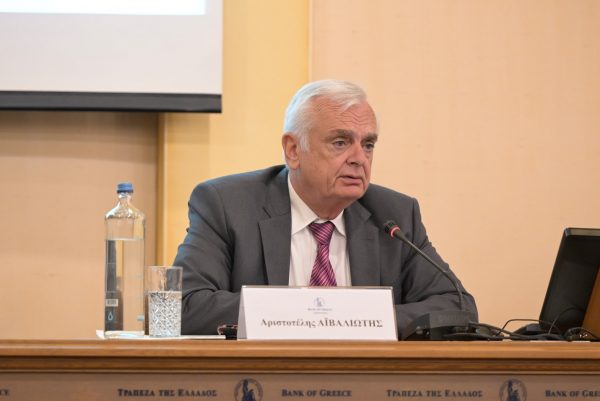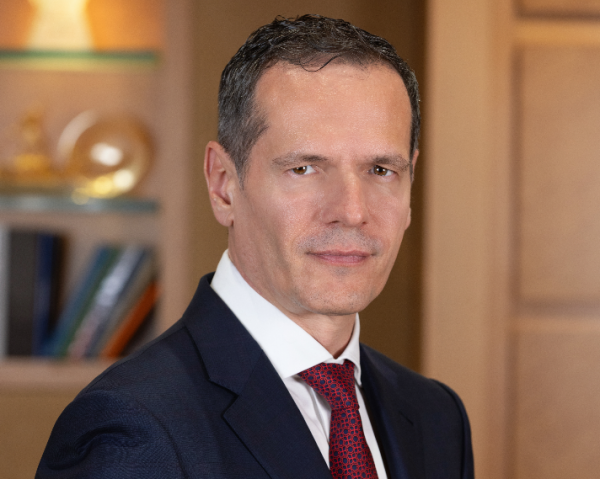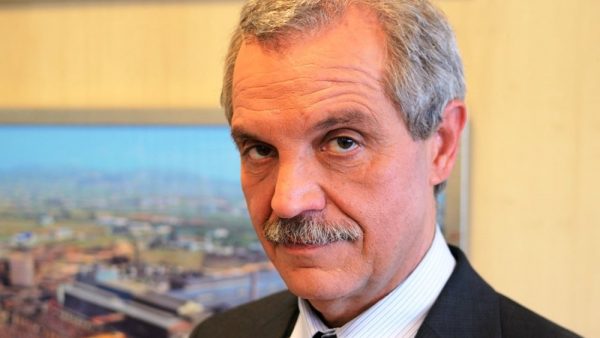The special adviser to the Prime Minister on energy issues, Mr. Nikos Tsafos, referred yesterday to the multifactorial equation, which shapes electricity prices and does not allow the cheap cost of Renewable Energy Sources (RES) to reach consumers’ tariffs, speaking at the energy forum “Renewable & Storage”.
Mr. Tsafos admitted that Greece has one of the most expensive electricity prices in the wholesale market in Europe, pointing out that it is a perennial phenomenon due to a structural problem of the Greek energy market.
According to him, the price of electricity in the wholesale market in each country depends on three factors: the energy mix, geography and the level of competition.
The “mix” factor and the gas that drives up current rates
As for the energy mix, as Mr. Tsafos pointed out, “in Greece we are doing very well in RES”, but when compared with other European ones, our country does not have nuclear and bioenergy, while hydroelectric energy is smaller, consequently finally “to have one of the highest rates of electricity generation from fossil fuels and especially from natural gas”.
As he underlined the general rule in the Greek market is that “the price of electricity in the wholesale market is high when we use a lot of gas”.
The “geography” factor
At the same time, he also spoke about the malfunctioning of the European electricity system as there are big differences between the north and the south, pointing out that interventions are needed at the European level. “We are next to Italy, which when we are not the most expensive market in terms of electricity prices, is usually it and often pulls us up. Also in the summer there was a market malfunction in Central Europe which raised the prices too much in us, in Bulgaria, Romania, Hungary”, said Mr. Tsafos.
The Prime Minister’s special adviser on energy issues, Mr. Nikos Tsafos
In this geographical boundary the electricity prices change and Austria, the Czech Republic did not have the same price. “We saw a malfunction of the European system. The initial reaction was that the electrical wires were filled. The truth is that the cables were not filled, which raises many questions about how energy flows in this area of Europe.
Interventions are needed at the European level and we are arguing for them in the European forums”, noted the special advisor to the Prime Minister, explaining that the phenomenon of the summer with the extreme electricity prices in our region had 4-5 different parameters – the heat, the low production of the hydroelectric plants due to water shortage, power exports to Ukraine, network maintenance.
The “competition” factor
In the competitive landscape the picture appears to be murky as to how it affects electricity prices. “If one correlates the level of competition with prices, Italy has one of the most competitive markets, but it always has the highest price. France is at the other end, almost a monopoly, but has very cheap energy. Cyprus is even more monopolistic and has very expensive energy.
Why? Because the energy mix and geography prevail. In the spring when I don’t need much gas and all the gas players have to compete to get into the market, the price gets squeezed down. In the summer, with a regional crisis we had to light everything we could. Obviously in these circumstances, no matter how many players there are, the price will go up,” Mr. Tsafos explained.
When asked how more renewables will translate into cheaper electricity prices, he said that energy storage (batteries and pumped storage) will reduce evening surges and smooth out price variation within the day.
“Aggressive stance” on energy storage
For his part, the General Secretary of Energy and Mineral Raw Materials, Mr. Aristotelis Aivaliotis, analyzing the characteristics of the new competitive era in energy, stated that the Ministry of the Interior takes an “aggressive stance” in relation to the promotion of energy storage, which will give a breather regarding the “green” energy cuts, but, as he characteristically said, “even breathing has limits because we have a large RES production in relation to domestic demand”.

The General Secretary of Energy and Mineral Raw Materials Mr. Aristotelis Aivaliotis
The new National Energy and Climate Plan (NECP) foresees the installation of 4 gigawatts of batteries by 2030.
And he explained: “At the moment we speak (as of midday Thursday) 83% of electricity generation from RES has a zero price. And if something saves us from crazy cuts is that we have very large exports at the same time, currently at 1,300 MW. We have been exporting for two months now and they help a lot in the smooth functioning of the market. But let’s not rest. It’s something that can change in the future because it’s not just us running the green transition, but also the neighbors, who may end up having competitive advantages that we don’t have.”
Regarding the promotion of storage, the Secretary General referred to the soon-to-be-launched enterprise battery program which he predicted would subsidize systems of around 350 to 400 megawatts. The new National Energy and Climate Plan (ESEP) envisages the installation of 4 gigawatts of batteries by 2030. So far around 900 megawatts will be boosted with funds from the Recovery Fund, another 600 MW will be added to RES parks and around 1,000 with 1,500 megawatts, as Mr. Aivaliotis pointed out, will concern stand alone batteries, with the details to be specified in a ministerial decision that will be published immediately, while the remaining capacity will be covered by hybrid projects.
The market and network congestion
“Storage will solve the problem in the short term, it is not the litmus test, as the ‘elephant in the room’ is the demand which is the big risk for RES”, he emphasized.
Today, according to Mr. Aivaliotis, we have cuts in RES due to purchase and grid congestion. “The first ones are at 85%-90%. We could review the order of priority that different forms of energy enter the system and “eat” the demand, respecting the European directives as well as the provisions of the contracts of the RES producers which have added additional potential than what is foreseen in the initial investment.
In order to introduce more RES, which will also lower prices, overall for consumers, more grids must be built.
We will deal with this through a strict system with financial and disciplinary penalties that will be created by the RAAEF”, he noted.
Manos Manousakis
For his part, the managing director of ADMIE, Manos Manousakis, pointed out that storage is not a panacea for the cuts as it can smooth out the problem arising due to demand, but not the problem of cuts arising from network congestion.

The CEO of ADMIE, Manos Manousakis
In order to introduce more RES, which will also lower prices, overall for consumers, according to him, more networks must be built.
However, because the construction of a network is very difficult and time-consuming, Mr. Manousakis emphasized that the approach that applies today regarding the unregulated siting of renewable energy sources, without measuring the availability of the network, must be changed.
The industry
However, according to the president of EBIKEN, Antonis Kontoleon, RES and interconnections will not drop electricity prices by themselves, but arrangements must be made to determine wholesale market prices in the near future.

The president of EVIKEN, Mr. Antonis Kontoleon,
“Suddenly energy-intensive industries in our country from 2023 found themselves exposed to electricity prices in the wholesale market without any hedging tool and without support. They should at least receive the same support that European governments give their own energy-intensive industries.
We ask for nothing more, nothing less,” he pointed out. He added: “It is an indisputable fact that the high cost of energy is a brake for energy-intensive industries in our country. It is true that uncompetitive electricity prices in the domestic market are hurting their international competitiveness.”
Source OT
#Electricity #prices #dont #fall #factors

